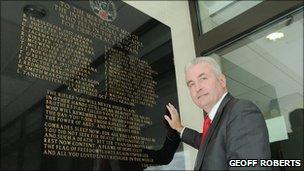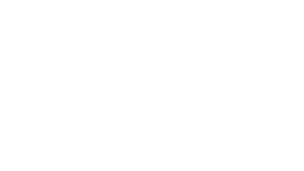Plaque for Spanish Civil War dead at Liverpool's Unite
- Published

The plaque remembers those who died defending the Spanish government
A plaque with the names of those from Merseyside who lost their lives fighting in the Spanish Civil War has found a permanent home in Liverpool.
The memorial, with the names of 27 local people, has been unveiled at the Unite building in Islington.
The city's office block has been called Jack Jones in honour of the ardent trade unionist from Garston who was badly injured in the conflict.
Unite's regional secretary Paul Finegan said: "We feel very privileged."
There were approximately 180 men and women who left the safety of Merseyside to defend the Spanish government against the might of General Francisco Franco's nationalist rebels between 1936 and 1939.
Jack Jones survived the war and became the leader of the Transport and General Workers' Union. He was heavily involved with the unions until he died aged 96 in April last year.
Local historian, Danny Payne, said that although there were 27 names on the plaque, after further research it is believed that 30 people from Merseyside died fighting.
'Strangled Republic'
They had to travel there in secret, after the UK government declared it illegal to fight in Spain as it tried to appease Hitler's huge fascist force in the lead up to the Second World War.
In total, 2,500 from across the British Isles fought in the Spanish Civil War and 500 did not survive.

The fascist regime struck fear in the hearts of many across Europe
Mr Finegan said: "The plaque used to be on the wall of the unemployed and trade union centre in Hardman Street, but since it closed years ago, it has been sent from place to place across the city.
"Now it's good that it has a permanent home here, it all seems to fit together well - a newly refurbished building called Jack Jones and a memorial dedicated to those who lost their lives in the same war he fought."
The civil war ended after WWII had started. More than 300,000 people died and the Republicans were persecuted by the victorious nationalist parties.
Mr Payne added: "It was an horrific war, Franco's uprising was supported by the Hitler and Mussolini regimes so he was furnished with arms.
"The Republic was short of weapons and medical supplies and it was basically strangled by the might of Franco."